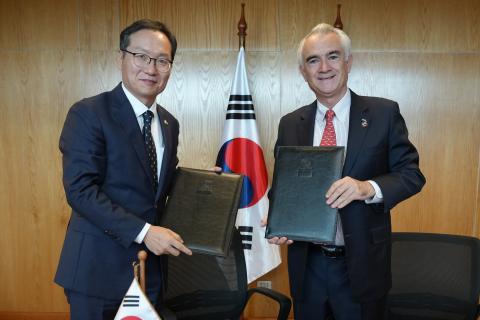Press Release
Caribbean governments can turn high fuel costs for official vehicles into huge savings on public expenditure, by switching to electric, hybrid and plug-in hybrid vehicles. This means that instead of paying close to US $3 per gallon, the fuel cost for a regular size light duty battery electric vehicle would be about 2.5 cents per mile.
These and other findings can be found in a new report from the Economic Commission for Latin America and the Caribbean (ECLAC) subregional headquarters for the Caribbean, entitled `Promoting energy efficiency in government transportation systems: A transition roadmap and criteria for a readiness analysis’.
Electric vehicles (EVs) are not only efficient in energy consumption, they are also environmentally friendly when used properly since they produce zero tailpipe emissions. In light of this, transitioning to EVs will benefit Small Island Developing States (SIDS) in reducing their high dependency on fossil fuels and thereby creating environments for sustainable energy projects.
The report notes that several countries in the Caribbean have started discussing alternatives to improve EE in their national fleets. However, before this can become a reality in the Caribbean, there are some challenges to the process which should be taken into consideration.
In this context, the ECLAC study offers a guide to assist policymakers in identifying the necessary data, as well as the technical, governance, infrastructure and financial conditions required to support the transition to an energy efficient government fleet.
The improvement of fleet administration practices is expected to yield benefits even before fleet electrification, which include under or overuse of vehicles, use of vehicles for inadequate/inefficient functions, wasteful routing and other issues that hinder efficiency.


